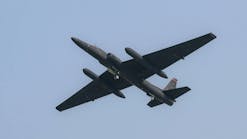AIRPORTS
At present, India has 455 airports/civil enclaves and airstrips. About 124 airports are managed by the Airports Authority of India (AAI) comprising 85 operational airports/civil enclaves and 39 non-operational airports/civil enclaves. The 85 operational airports are comprised of 13 international airports, seven customs airports, 23 domestic airports and 42 other airports.
In addition to the above 124, three airports – Cochin, Delhi and Mumbai (Bombay) are managed by private companies. However, the AAI continues to retain a certain status at these three airports.
Indian airports handled 73 million passengers during 2005-06, registering an increase of 24 percent over 2004-05, the highest ever growth achieved. The traffic growth in 2004-05 over 2003-04 stood at a level of 21 percent which is also a significant increase. The sector is poised to grow at a rate of more than 15 percent over the next four to five years. The growth in passenger traffic has been driven by the launch of low-cost carrier operations in 2003-04.
The metro airports handle nearly 75 percent of total passenger traffic, with Delhi and Mumbai airports together handling nearly 47 percent of total passenger traffic. The recent upsurge in passenger traffic has been driven by four factors: rising GDP (gross domestic product), the entry of low-cost carriers, a booming tourism industry and the liberalization of international bilateral agreements.
The increase in aircraft movement and freight traffic has been lower than that in passenger traffic. Aircraft movement saw 17 percent growth in 2005-06 over 2004-05 while freight traffic grew 10 percent.
Rising traffic has highlighted the inadequacy of airport infrastructure. Indian airports do not match up to international standards. The ground infrastructure is saturated, particularly at metro airports. It is estimated that a sum of about Rs.400 billion (US $9 billion) will be required to improve the infrastructure and ground handling facilities at airports across India. This has led to an increased focus on the modernization of existing airports as well as the construction of new ones.
AIRLINES
The airports are served by 13 scheduled airlines and 48 non-scheduled carriers. The scheduled airlines are Air India, Air India Express, Indian Airlines, Alliance Air, Jet Airways, Sahara Airlines, Deccan Aviation, Kingfisher Airlines, SpiceJet, Paramount Airways, Go Airlines, IndiGo Airlines (which began operations in August 2006) and Blue Dart Aviation Limited. Apart from these, Indus Airways has received the go ahead to operate scheduled air transport services.
The Indian Government's new Civil Aviation Policy is also likely to have a policy made by the Civil Aviation Ministry on ground handling. The alliances mentioned hereinafter in this article are quickly falling into place to meet further liberalization in this market where the entry of new companies has not only begun, but will continue to be inevitable in the forthcoming years.
There have been several new alliances and joint ventures which have been created in India for the purposes of ground handling—some of them currently are loose alliances yet to be formalized, whereas some have been formally announced with international majors. Following is an overall perspective of the situation.
BRIEF HISTORICAL BACKGROUND
The Indian ground handling scenario has primarily been controlled by Air India, Indian Airlines and Cambata Aviation for international carriers and self handled by carriers like Air France and Lufthansa through their subsidiary called Globe Ground India.
Air India and Indian Airlines are India's national government-owned airlines that operate ground handling services at virtually all of the 80 odd active airports in India.
Cambata Aviation is primarily located at Mumbai (Bombay) and Delhi, with a recent presence in Chennai.
Various smaller airlines operating narrow-bodied aircraft primarily carry out self-handling work for their captive requirements.
Ground handling services in India are regulated by the Airports Authority of India (general management, entry for ground handling services) Regulations, 2000. As per the regulations, an operator or carrier may carry out ground handling services at an airport by itself or engage the services of the following:
- Airports Authority of India
- Two national carriers: Air India and Indian Airlines
- Any other handling agency licensed by the airports
Authority of India
The Indian skies are dotted with a number of private and public airlines, but on the ground there is one clear frontrunner, Air India.
For more than 70 years, Air India has been India's national flag carrier. While it is one of the foremost airlines, it is also renowned for expertise in technical capability, operational reliability and impeccable ground services.
A member of the International Air Transport Association (IATA), Air India provides quality services at attractive rates and minimum turnaround time.
With a view to provide specialized services and expand, Air India has established subsidiary companies for ground handling, namely Air India Air Transport Services Limited (AIATSL) and Air India Engineering Services Limited (AIESL) for engineering services. Air India also has another subsidiary, Air India Charters Limited, operating Air India Express as a low cost carrier.
Air India boasts a professionally managed workforce of 15,000 employees, including highly trained and experienced engineers and technicians. It has state-of- the-art infrastructure consisting of modern handling equipment, hangars and workshop and training facilities.
Air India's Expertise
- Experience of providing ground handling services to more than 50,000 flights annually, including over 24,000 flights of 55 international airlines.
- 5,800 skilled employees engaged in provision of ground services.
- More than 5,300 pieces of motorized and towable ramp equipment.
- ISO Certification for Ground Handling Department since 1999, with successful implementation of revised ISO 9001-2000 standards.
- Modern workshop facilities to help ensure high levels of ramp equipment reliability.
- Training establishment to make its own employees and other airlines' personnel more skillful and efficient.
Air India therefore provides the following ground handling services to 55 airlines apart from its own carriers at 12 international airports: passenger, baggage, cargo and ramp handling and security, cabin cleaning and technical services.
Revenue generated from the gound handling activity is about Rs.4 Billion (US $90 thousand) from foreign airlines (from more than 400 flights per week). This excludes revenue from self-handling activity for Air India's own flights.
India's ground handling market is estimated to be Rs.11 billion (US $247.8 thousand) per annum, excluding revenue from self-handling of flights by airlines themselves.
Air India presently enjoys 55-percent market share in the Indian ground handling business. Their current market share is expected to remain consistent considering the present regulatory framework.
Indian Airlines provides ground handling services on the ramp (tarmac) for twelve airports in India and Kathmandu in Nepal. They also provide equipment for aircraft handlings at all other airports in India and arrange their procurement and maintenance/repairs.
Cambata Aviation is India's largest privately owned independent ground handling company, who have grown at nine to 12 percent per year over the last five years. Cambata Aviation operates with more than 3,000 employees and annually handles about 10,000 flights for 23 international cargo and passenger airlines operating in India.
THE ROAD AHEAD
At the government-owned airports, the monopoly continues to remain with Air India and Indian Airlines. However, with the imminent merger of our national carriers, the ground support division of both the airlines will—two to three years down the line—become a merged entity. Effectively, this merged entity will be the only "Pan Indian" (across India) company providing ground support at all airports. The most likely international partner for this Pan Indian Entity will be Singapore Airport Terminal Services (SATS), who have already allied with Air India on specific projects.
New Private airports under construction
Cochin International Airport Limited (CIAL) was India's first privately managed airport in successful operation since 1999. The Airport had granted an exclusive 10-year ground handling license to Air India.
The Air India monopoly on ground handling at Cochin ends in May 2009. Given that their initial 10-year exclusive concession expires at that time, new licenses to probably one or two companies at Cochin will be awarded and the airport operators may operate as a ground handler according to indications currently available.
In the case of the new Bangalore International Airport—a Siemens/Unique Zurich/Larsen & Toubro and local Bangalore Government joint venture—the licenses for seven years, effective in 2008, have been awarded to two consortia: Air India - SATS and Globe Ground India. This represents SATS Singapore's initial entry into India's ground handling market.
As for the new GMR Hyderabad International Airport Limited—a GMR Group/Malaysian Airports Holding and local government joint venture—the bidding process is currently on and the following companies have reportedly been invited to bid.
i) ASIG (Aircraft Service International Group)
ii) KLM Airlines
iii) Lufthansa (Globe Ground India)
iv) Air India
v) Indian Airlines
vi) Swissport
vii) Menzies
viii) WFS (Worldwide Flight Services)
ix) SATS (Singapore Airport Terminal Services)
x) Penauille Servisair
xi) Celebi Turkey
xii) DNATA, Dubai
Out of the above, the objective of the airport is to select two concessionaries—a ground handling company which is also an airline and an independent stand alone ground handling company. Air India/Indian and SATS as a consortium are likely to get one out of the above two licenses on offer.
However, it is recently understood that the Indian government's Ministry of Civil Aviation is also considering DNATA as a possible joint venture partner to Air India as an alternative to SATS, (as reported in Business Standard December 25, 2006).
To meet the above challenges of the Greenfield airport concessions and the impending liberalization of the ground handling sector by awarding new licenses through the Airports Authority of India, the following new alliances seem to be emerging:
- Swissport has formed a 51/49 joint venture with the Punj Lloyd Group, New Delhi. Punj Lloyd Group of India is a large construction company with a pending order book of almost US $3 billion.
- Globe Ground India, New Delhi is a joint venture between Lufthansa Airlines and The Bird Group.
- Cambata Aviation, Mumbai is also looking for an international partner NOT from the view of ownership, but from someone who can lend their name and expertise. This could probably be a local company in some other country like Equity Aviation South Africa.
- Jet Airport Services Private Limited, Mumbai (same ownership as India's leading, privately-owned domestic airlines Jet Airways) have reportedly entered into an MOU with ASIG. Mr. Mark Edwards, managing director of ASIG, UK reportedly stated that they wish to service a wider ground handling and into-plane services market for India and neighboring countries in partnership with the Jet Group.
- Aviation India, New Delhi has reportedly signed an MOU with Groundforce Portugal to start handling activities at various airports in India once the liberalization process is in force.
- Global Aviation, Mumbai—who earlier had an MOU with Apron Services South Africa—have reportedly tied up with Worldwide Flight Services for a joint venture.
- Global Aviation has already begun work under sub-contract from Air India at Trivandrum and Kolkatta airports and has built up their team to 300 people. Global have reportedly bought another licensed manpower company at airports by the name of Divya Aviation, with a staff strength of 4500 people.
- Livewel Aviation, Mumbai a large airport services manpower provider has reportedly tied up with Aviapartner to participate in some of the new tendering activities of Hyderabad.
- Menzies Aviation, UK have a joint venture in place with Bobba Group headquartered in Bangalore. With this alliance in place—in addition to the synergies in the cargo sector—has also resulted in a ground handling partnership for Hyderabad and possibly more airports. The Bobba Group is a Lufthansa Cargo GSA for India.
- Celebi, Turkey have tied up with the Spencers Group, part of a large Industrial House RPG Enterprises, to enter the ground handling business, virtually leaving out only Penauille Servisair—who has reportedly tied up with Associated Containers.
- Various other Indian players like Jeena & Company, Mumbai—a freight forwarder in business for over 100 years—are exploring entering this field. Likewise airlines like Kingfisher—who will move into widebodied operations—will also have an expanded set-up on their own for ground handling services under the self handling route.
- The Interglobe Group who have also promoted Indigo Airlines are also focusing on ground support as an independent activity and continue to use their background with their GSA relationships and continue their self handling business in joint venture with International airlines like Air France and Delta, in Mumbai and Chennai.
THE AIRPORT PRIVATIZATION PROCESS
The Mumbai and Delhi Airports have recently been privatized and GVK and GMR groups respectively, are the new owners on a 30-year modernization lease extendable by another 30 years. Mumbai Airport is thus called Mumbai International Airport Limited and Delhi Airport is called Delhi International Airport Limited.
The Mumbai Airport partnered with Airports Company of South Africa and the Delhi Airport partnered with Fraport and Malaysian Airport Holding and we would assume both the airports will soon look for new ground handling concessionaires as part of their modernization program/revenue forecasts.
CONCLUSION
In view of these developments, one can see that there is indeed a great deal of hectic activity in the ground handling business to meet the aviation boom in India. International companies are vying with each other for a pie in the sky.
India currently has four airlines flying internationally and seven airlines flying domestically.
With the current aircraft population in India at only 200—with orders for 300 more in the pipeline—and a healthy year-on-year passenger growth of 38 percent, it is only a question of time before the ground handling market explodes by leaps and bounds.
For more updates on India do keep watching this space.
Milan Zatakia, Ground Support's South Asian correspondent, has run a well-established GSE Sales and Service business in India for more than two decades. Milan holds his business position as chairman and CEO of Millennium Aero Dynamics Pvt. Ltd. (www.millennium-aero.com) with offices throughout India and is active on Indian Aviation Industry bodies and Chambers of Commerce. He is also the National Vice President of Air Passengers Association of India (APAI). Milan may be contacted at [email protected].





